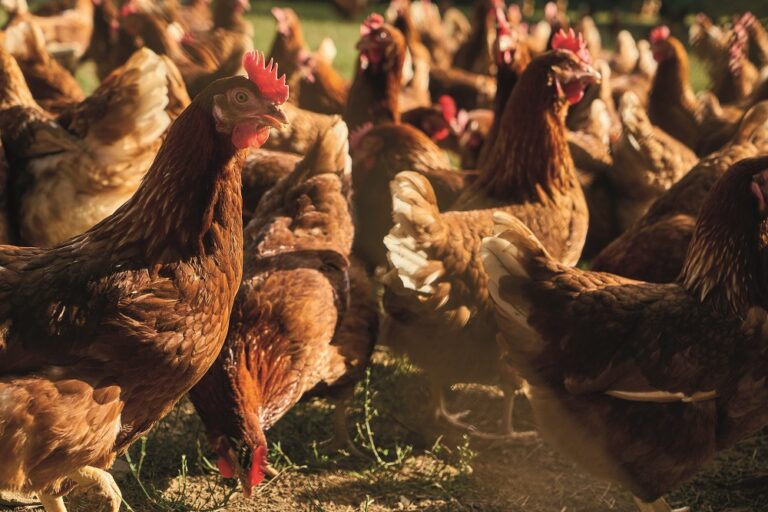Verandas are to become a requirement for barn egg producers who are members of RSPCA Assured, under new standards due to be phased in next year.
RSPCA Assured has announced the details of new welfare standards for laying hens. From 01 May 2024, the new RSPCA standards will come into effect. However, this will be a phased process for some of the more significant changes, and farmers will be given up to six years to implement these.
All existing barn RSPCA Assured members have until 1 January 2030 to provide hens with access to a veranda and also meet new natural daylight requirements.
Following consultation with industry the RSPCA and RSPCA Assured will not be requiring verandas for existing free-range members.
Dr Kate Norman, Senior Scientific Officer and poultry specialist at the RSPCA, said: “The new laying hen standards will be a huge step forward for hen welfare. Two of the key new standards are the introduction of verandas for barn members and the new requirements for natural daylight for both barn and free-range members, which will come into force in 2030.
“We recognise these are a big change for some of our members and it’s therefore really important that we give them enough time to make the necessary changes and support and advise them during that process. As such, RSPCA Assured has doubled the notice period usually given to members to implement new standards from three to six months, and the RSPCA has allowed up to six years for the more significant changes, such as verandas and natural daylight, to be made.”
A veranda is an additional roofed, but uninsulated, structure attached to the outside of a poultry building, which has a fully littered floor. Alongside other key welfare improvements, verandas provide barn hens with access to natural daylight and an outdoor climate.
“There are farmers in the UK and Europe that have already successfully installed verandas or are considering investing in them, which demonstrates how achievable these standards are, even though they may feel challenging,” said Norman.
“When looking at the European farms and research, we discovered that including a veranda resulted in a reduction of the daytime stocking density in the main house. This has welfare benefits such as promoting preening, dustbathing and foraging behaviour and reduces feather damage.”
The new natural daylight standard requires barn and free-range members to provide natural daylight in houses for all hens by the age of 21 weeks, and the natural daylight coverage must correspond to at least 3% of the total floor area of the house.
“Natural daylight is not something that is commonly given to laying hens in the UK,” said Norman. “But giving them natural light provides many welfare benefits. Turkey and broiler producers under the RSPCA Assured scheme are already required to provide natural daylight inside the house, and we have had really positive feedback from many of them about the benefits. Especially regarding improvements in bird activity levels, for example, less time lying and more time standing which improves leg health.”
The new standards are not only intended to further improve hen welfare but also better protect farms during times of disease outbreak, such as bird flu. The RSPCA and RSPCA Assured believe that the provision of verandas and natural daylight can help better maintain the health and welfare of hens, despite any imposed restrictions such as housing orders.


